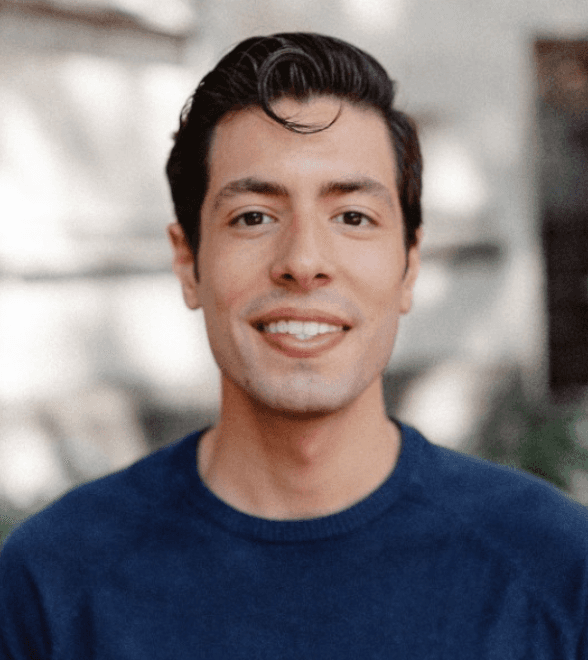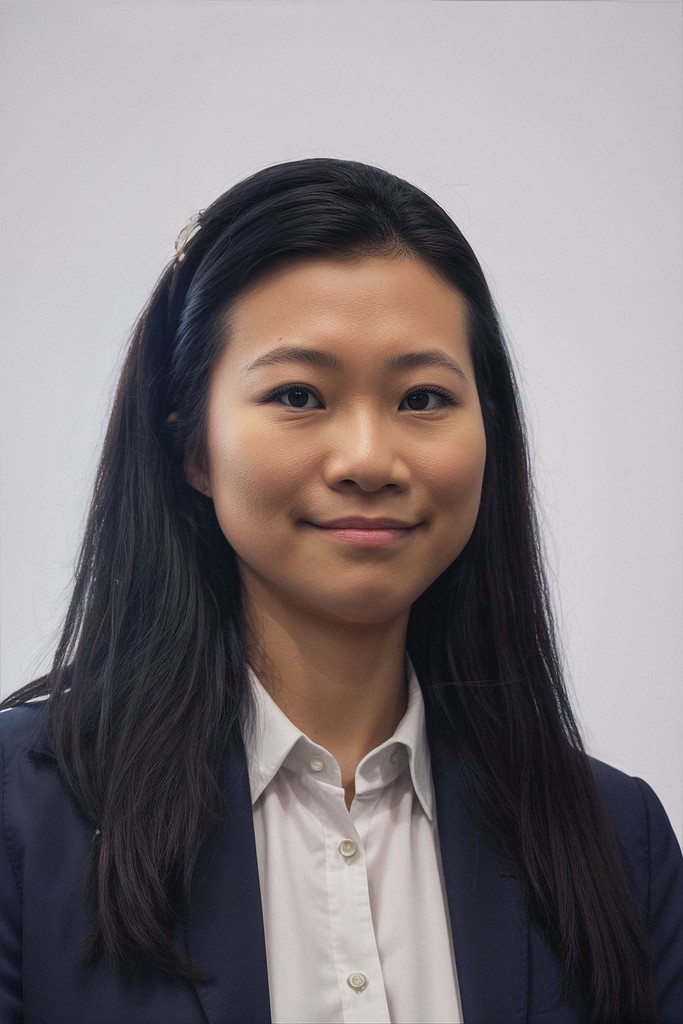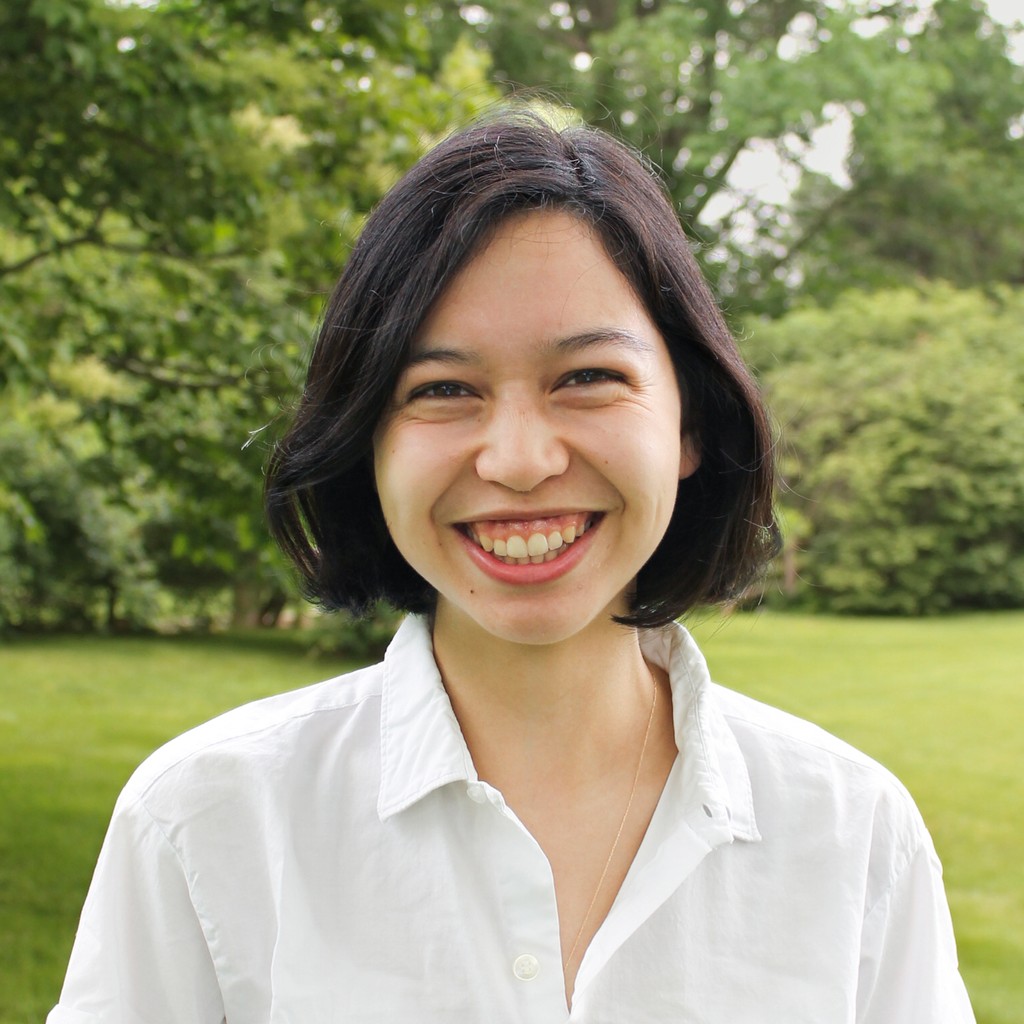


Capstone Project
Capstone Project
Capstone Project
Capstone projects serve as a bridge between classroom learning and real-world application, showcasing students' ability to tackle genuine challenges within their field. Completing these projects demonstrates students' proficiency, creativity, and problem-solving prowess, bolstering their college applications with concrete evidence of their capabilities.
Capstone projects serve as a bridge between classroom learning and real-world application, showcasing students' ability to tackle genuine challenges within their field. Completing these projects demonstrates students' proficiency, creativity, and problem-solving prowess, bolstering their college applications with concrete evidence of their capabilities.
Capstone projects serve as a bridge between classroom learning and real-world application, showcasing students' ability to tackle genuine challenges within their field. Completing these projects demonstrates students' proficiency, creativity, and problem-solving prowess, bolstering their college applications with concrete evidence of their capabilities.
Unveiling Authentic Research to Students
Unveiling Authentic Research to Students
Our unique capstone project provides hands-on experience with real research projects alongside Yale's esteemed scholars, equipping students with practical skills in critical thinking, problem-solving, and data analysis.
During the pre-summer phase, our capstone instructors, hailing from vibrant research centers at Yale, will work closely with students to refine research topics for either group capstone projects (consisting of 4-6 students) or individual endeavors.
Throughout the summer, students will engage in collaborative teamwork or independent exploration to navigate the entire research journey, ultimately concluding with a final poster and presentation session.
Furthermore, students will receive comprehensive support to finalize their capstone research papers or pursue any related academic endeavors, facilitated through email exchanges and dedicated office hours with their academic mentors.
A year-long research projects

Capstone Intro
Pre-Program online meetings
Capstone instructors will give a lecture introducing their backgrounds, current research interests, and proposed research topics.

One on One Meeting
Pre-Program online meetings
Students will sign up for capstone projects based on their interests, listing their first and second choices. The assigned capstone instructor will then conduct one-on-one meetings with each student to delve deeper into their academic background, project experience, and research interests.

Capstone Discussion
Pre-Program online meetings
Capstone instructors will host two group sessions to finalize their research plan. Additionally, they will distribute a reading list for students to prepare before the summer.

Evening Sessions
In-person at Yale campus
Each evening 7:15-9:00pm, your group of 4-6 students will convene to collaborate on your research and presentation.
Your instructors will provide brief instructional sessions on navigating the required research steps and will act as supportive mentors, offering detailed feedback on your work.
Through the capstone experience, you will gain insight into working with a cohesive team under tight deadlines, mastering the art of producing high-quality essays within mere hours.

Presentation Day
In-person at Yale campus
On July 31st, your group will showcase your capstone project during a poster session and a group presentation session, followed by the Competition Awards Ceremony.

Refining the Paper
Pre-Program by emails
Polish group capstone project papers via email discussions with capstone instructors

Office Hour
Post-Program online meetings
Monthly office hour group sessions offer students the opportunity to receive support, feedback, and mentorship from instructors, enriching their research experience.

Optional Classes
Pre-Program online meetings
Capstone instructors may provide optional advanced classes (with reasonable fees) for groups interested in delving deeper into their research.
Capstone Projects Introduction Meetings
Capstone Projects Introduction Meetings
Prior to summer, capstone instructors will arrange meetings to introduce themselves, sharing insights on their ongoing research, past publications, and methodologies. They will highlight significant topics within their research domain to showcase proposed capstone projects, providing details on approaches, tools, and timelines. Crucially, students will have the opportunity to pose questions about the capstone projects before making their final selections.
Choose your Capstone Topic/Group
After all Capstone project introduction meetings, students will submit a feedback form along with their top two choices for capstone topics. The instructor will then select 4-6 students and conduct one-on-one meetings to learn more about them and refine the final group research topics.
Four Categories of Capstone Projects
Four Distinguished Capstone Categories to Enhance Students' Academic Pursuits and Research Endeavors


Master Capstone Project
A Yale professor, alongside affiliated scholars, leads exceptional students in using fundamental and innovative theories and tools to analyze real-world challenges.


Group Capstone Project
Pivot offers group capstone projects in four foundational areas: Technology & Science, Humanities, Life Sciences, and Business. sd


Individual Research Capstone Project
For students seeking a more in-depth and challenging research experience or those interested in specialized fields such as architecture, music, art, etc.
For students seeking a more in-depth and challenging research experience or those interested in specialized fields such as architecture, music, art, etc. sdada


Reading and Writing Workshop
For students who find the capstone project particularly challenging, we offer customized reading and writing workshops designed to meet their individual levels and needs.
A year-long research projects

Capstone Intro
Pre-Program online meetings
Capstone instructors will give a lecture introducing their backgrounds, current research interests, and proposed research topics.

One on One Meeting
Pre-Program online meetings
Students will sign up for capstone projects based on their interests, listing their first and second choices. The assigned capstone instructor will then conduct one-on-one meetings with each student to delve deeper into their academic background, project experience, and research interests.

Capstone Discussion
Pre-Program online meetings
Capstone instructors will host two group sessions to finalize their research plan. Additionally, they will distribute a reading list for students to prepare before the summer.

Evening Sessions
In-person at Yale campus
Each evening 7:15-9:00pm, your group of 4-6 students will convene to collaborate on your research and presentation.
Your instructors will provide brief instructional sessions on navigating the required research steps and will act as supportive mentors, offering detailed feedback on your work.
Through the capstone experience, you'll gain insight into working with a cohesive team under tight deadlines, mastering the art of producing high-quality essays within mere hours.

Presentation Day
In-person at Yale campus
On July 31st, your group will showcase your capstone project during a poster session and a group presentation session, followed by the Competition Awards Ceremony.

Refining the Paper
Pre-Program by emails
Polish group capstone project papers via email discussions with capstone instructors

Office Hour
Post-Program online meetings
Monthly office hour group sessions offer students the opportunity to receive support, feedback, and mentorship from instructors, enriching their research experience.

Optional Classes
Pre-Program online meetings
Capstone instructors may provide optional advanced classes (with reasonable fees) for groups interested in delving deeper into their research.
Capstone Projects Introduction Meetings
Prior to summer, capstone instructors will arrange meetings to introduce themselves, sharing insights on their ongoing research, past publications, and methodologies. They will highlight significant topics within their research domain to showcase proposed capstone projects, providing details on approaches, tools, and timelines. Crucially, students will have the opportunity to pose questions about the capstone projects before making their final selections.
Choose your Capstone Topic/Group
After all Capstone project introduction meetings, students will submit a feedback form along with their top two choices for capstone topics. The instructor will then select 4-6 students and conduct one-on-one meetings to learn more about them and refine the final group research topics.
Four Categories of Capstone Projects
Four Distinguished Capstone Categories to Enhance Students' Academic Pursuits and Research Endeavors
Sample Capstone Project

Master Capstone Project
A Yale professor, alongside affiliated scholars, leads exceptional students in using fundamental and innovative theories and tools to analyze real-world challenges.

Group Capstone Project
Pivot offers group capstone projects in four foundational areas: Technology & Science, Humanities, Life Sciences, and Business.

Individual Research Capstone Project
For students seeking a more in-depth and challenging research experience or those interested in specialized fields such as architecture, music, art, etc.

Reading and Writing Workshop
For students who find the capstone project particularly challenging, we offer customized reading and writing workshops designed to meet their individual levels and needs.

Identifying putative gene-editing targets to prevent unwanted bolting in vegetables
Bolting refers to the premature development of floral organs in plants. In the case of leafy vegetables, the formation of floral tissue leads to a decrease in nutrient quality and flavor, yielding to an unviable commercial product. By identifying the genes responsible for flowering in different leafy vegetable species, we can develop a strategy to target these genes with molecular editing tools that prevent bolting and lead to decreased crop losses.
Instructor: Daniel | Ph.D. Candidate
Molecular, Cellular and Developmental Biology
Dan is a scientist at Verinomics Inc., a biotech startup located in New Haven. The company performs gene editing of crops to develop cultivars that are healthier, tastier, and more energy-efficient. In his role, Dan designs and assembles DNA constructs that enable precise editing of many plant genomes. He then introduces these constructs into plants to generate crops with novel traits. Prior to working at Verinomics, Dan studied genetics at Iowa State University and obtained his Ph.D. from the Molecular, Cellular and Developmental Biology department at Yale.
Book Meeting with Dan !

Planning and Conducting Clinical Research
A course designed with a set of modules to introduce students to multiple topics relevant to the conduct of research.
In this project, students will learn how to conduct a literature review, formulate a research question, design studies, and report on their findings.
Instructor: Janet | Biostatistician
Yale University School of Public Health
Janet has been a biostatistician at the Yale University School of Public Health since 2015. Her center, the Collaborative Center for Statistics in Science (C2S2) at Yale, fosters research collaborations involving statistical methods and technologies. Janet's impactful research is dedicated to advancing data science and analysis in medical research. She has participated in fifteen clinical trials funded by NIH or NICHD and worked with many principal investigators, scholars, and clinicians on publishing research papers for mainstream journals
Sample Capstone Project

Humanity I
In a society of clashing worldviews, politics, and beliefs, whoever makes the most noise earns the spotlight, achieving main character status. But what about the silenced voices on the margins of society? How do we tell the stories of minor characters, and what, in turn, can their stories tell us? Inspired by literary scholar Alex Woloch’s theorization of character-space, students will analyze 19th-century literature from the unique perspective of minor characters, offering radical readings of the realist novel.
Instructor: Julia| PhD Candidate
English Department
Julia is a Ph.D. candidate in the English Language and Literature department at Yale, interested in 19th-century British literature, the global novel, and the affect of reading. Drawing on her interdisciplinary background in English and East Asian Studies, her doctoral dissertation examines Anglo-Japanese literary exchange from the 1850s to the 1920s, considering the roles of empire, identity, and cultural borrowing between the Meiji and Victorian eras. Beyond research, Julia is an English literature teacher for Yale undergraduates, as well as high school students.


Identifying putative gene-editing targets to prevent unwanted bolting in vegetables
Bolting refers to the premature development of floral organs in plants. In the case of leafy vegetables, the formation of floral tissue leads to a decrease in nutrient quality and flavor, yielding to an unviable commercial product. By identifying the genes responsible for flowering in different leafy vegetable species, we can develop a strategy to target these genes with molecular editing tools that prevent bolting and lead to decreased crop losses.
Instructor: Daniel | Ph.D. Candidate
Molecular, Cellular and Developmental Biology
Dan is a scientist at Verinomics Inc., a biotech startup located in New Haven. The company performs gene editing of crops to develop cultivars that are healthier, tastier, and more energy-efficient. In his role, Dan designs and assembles DNA constructs that enable precise editing of many plant genomes. He then introduces these constructs into plants to generate crops with novel traits. Prior to working at Verinomics, Dan studied genetics at Iowa State University and obtained his Ph.D. from the Molecular, Cellular and Developmental Biology department at Yale.
Book Meeting with Dan !


Planning and Conducting Clinical Research
A course designed with a set of modules to introduce students to multiple topics relevant to the conduct of research.
In this project, students will learn how to conduct a literature review, formulate a research question, design studies, and report on their findings.
Instructor: Janet | Biostatistician
Yale University School of Public Health
Janet has been a biostatistician at the Yale University School of Public Health since 2015. Her center, the Collaborative Center for Statistics in Science (C2S2) at Yale, fosters research collaborations involving statistical methods and technologies. Janet's impactful research is dedicated to advancing data science and analysis in medical research. She has participated in fifteen clinical trials funded by NIH or NICHD and worked with many principal investigators, scholars, and clinicians on publishing research papers for mainstream journals


Humanity I
In a society of clashing worldviews, politics, and beliefs, whoever makes the most noise earns the spotlight, achieving main character status. But what about the silenced voices on the margins of society? How do we tell the stories of minor characters, and what, in turn, can their stories tell us? Inspired by literary scholar Alex Woloch’s theorization of character-space, students will analyze 19th-century literature from the unique perspective of minor characters, offering radical readings of the realist novel.
Instructor: Julia| PhD Candidate
English Department
Julia is a Ph.D. candidate in the English Language and Literature department at Yale, interested in 19th-century British literature, the global novel, and the affect of reading. Drawing on her interdisciplinary background in English and East Asian Studies, her doctoral dissertation examines Anglo-Japanese literary exchange from the 1850s to the 1920s, considering the roles of empire, identity, and cultural borrowing between the Meiji and Victorian eras. Beyond research, Julia is an English literature teacher for Yale undergraduates, as well as high school students.

© Pivot Education Email: info@pivoteducation.org Phone: (+001 )475-287-5881

© Pivot Education Email: info@pivoteducation.org Phone: (+001 )475-287-5881

© ACES-Pivot Education Email: Info@pivoteducation.org; mzou@aces.org Phone: (+001) 203-498-6852